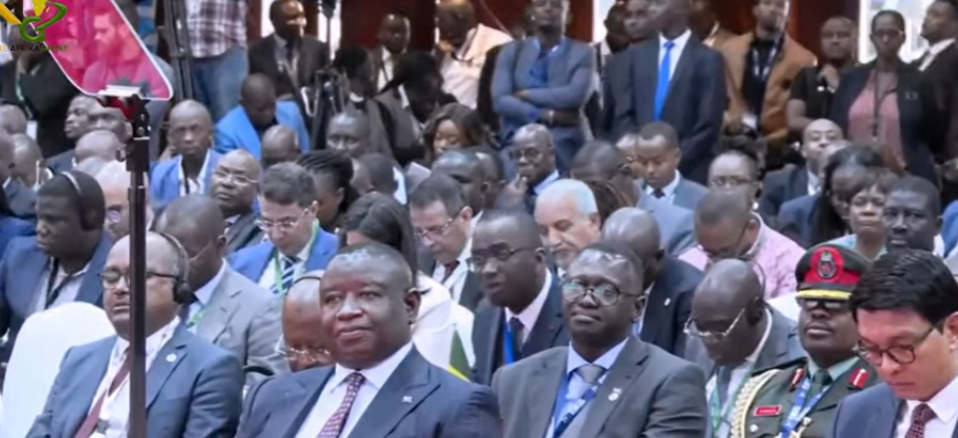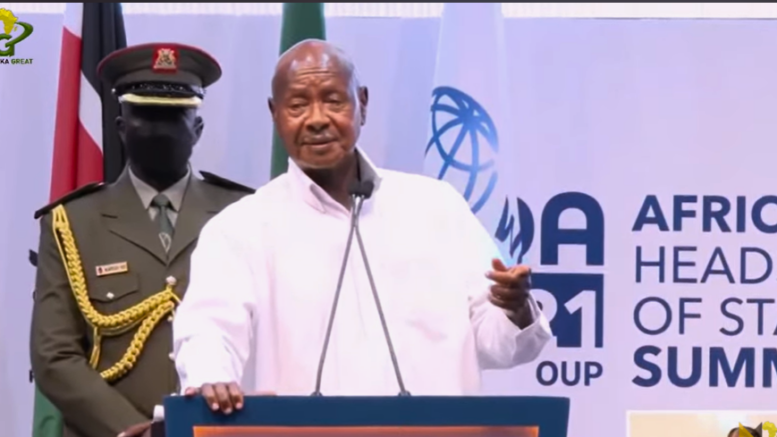In a forceful address, Yoweri Museveni, President of Uganda, articulated a bold critique of what he perceives as the global community’s continued economic exploitation of Africa. His words, resounding with urgency and frustration, highlighted a long-standing issue: Africa’s cycle of dependency on foreign aid and its role as a mere producer of raw materials for the global market.

Museveni Call to End Global Exploitation of Africa
Museveni pointed out a disturbing trend where African countries, rich in resources, are still caught in the trap of exporting raw materials without adequate local processing. He underscored the irony of countries that produce what they do not consume and consume what they do not produce, emphasizing that this perpetuates economic stagnation and dependence. For instance, he noted that African countries, including Uganda, contribute significantly to the global coffee market yet capture a minuscule portion of the profits from their exports.
Moreover, Museveni criticized the ineffectiveness of international aid, which he argued is often channeled into profit-driven projects under the guise of capacity building rather than addressing fundamental economic challenges like infrastructure development. He vehemently opposed what he called “modern slavery,” where Africans are relegated to being suppliers of cheap raw materials while missing out on the economic benefits of finished goods.
The Ugandan leader called for a shift from this unsustainable model to one that fosters genuine development through industrialization. He stressed the importance of building critical infrastructure, such as railways and energy systems, to lower production costs and enhance the competitiveness of African products in the global market. Museveni’s vision is clear: transform raw material exports into processed goods within Africa, thereby creating jobs, retaining wealth within the continent, and reducing economic vulnerabilities.
Museveni’s rhetoric was not just about economic policies but a broader call to action against the historical injustices that have hindered Africa’s growth. He demanded that international financial institutions rethink their development strategies and realign aid to support tangible, sustainable development that leads to economic independence.
In conclusion, President Museveni’s speech was a powerful reminder of Africa’s challenges. It also declared the President’s commitment to change the status quo, urging African leaders and global partners to prioritize policies that empower rather than exploit the continent. His message was clear: Africa must take control of its resources and future, turning potential into progress.




